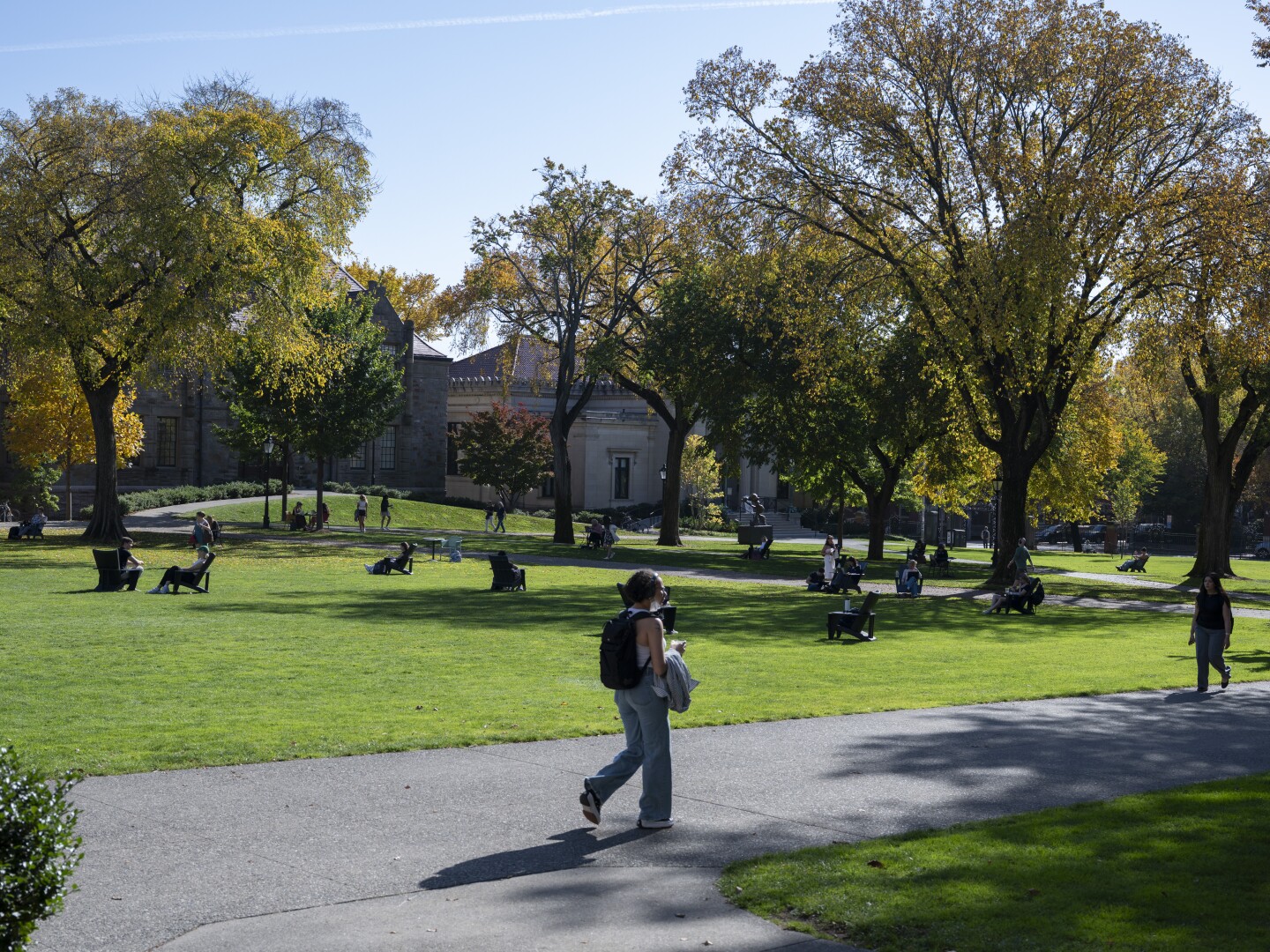April 30 marks the one-year anniversary since Brown University students packed up their pro-Palestinian encampment on the school’s Main Green. Students agreed to end the protest after school leaders said they would hold a vote on a proposal to divest from companies that support Israel, drawing both criticism and praise.
April 30 also marks President Trump’s 100th day in office, during which time he has cracked down on universities where his administration says there have been signs of anti-semitism, including Brown.
Reporter Olivia Ebertz has been covering developments at Brown since 2023. She spoke with Brown Professor J. Timmons Roberts about how Trump’s higher education edicts are affecting the school.
On how the mood on campus has shifted since the pro-Palestinian encampments of last spring.
J. Timmons Roberts, Professor of Environmental Studies, Environment and Society and Sociology: Last year was a remarkable year and a very troubling year. There were arrests and hunger strikes and sit-ins and then this encampment where they put up tents on the Green. And this was all just to get the Brown Corporation, our governing Board of Trustees, to consider the proposal from the students to divest from companies that were profiting from some of the military work that was going on in Israel. So here we are, a year later, and it’s been a very different year. The student protests have been, of course, much more subdued. There’s disciplinary action against some of these kids that just has been dragging on and dragging on – some of them, it’s really hung over their college experience.
There’s another whole layer of uncertainty and concern about the immigration status of our workforce. All those people are afraid to cross the border now, and that, to me, is just devastating. I can’t imagine having to make the choice of never going home during my 4-7 years of a PhD to see my family and friends and loved ones. I don’t think I would come to America if that was my choice, frankly.
On whether the actions President Trump is taking against universities such as Brown are related to the pro-Palestinian protests of last academic year.
Roberts: I think that President Trump is using those protests as an excuse, and he’s using the claim of anti-semitism on campus as a wedge to advance an agenda that he and Vice President JD Vance had for years. JD Vance says the universities, the professors, are the enemy. And there’s a reason why authoritarian figures want to get control over universities. These are places where criticism comes from, where people who have things to say have some protection to actually say it. And authoritarian figures don’t like that. My opinion is that this issue has really been weaponized, the issue of anti-semitism on campus.
On whether President Trump’s first 100 days in office have changed Brown in significant ways already.
Roberts: Individual grants are getting cut. I have colleagues who have lost funding, or at least have their funding frozen. The shock waves are greatest in the natural sciences and medical school and bio-med and so on, where there’s great dependency on federal funding. It’s this relationship of universities with the federal government — that they would support us, and we would push American frontiers of knowledge and industrial capacity and innovation — that has been an amazing model and really made us the envy of the world. And that’s really at risk now.
The university already has a structural deficit that the provost has been leading an effort to try to address. So there’s a bit of insecurity about jobs. There have been some programs that have been frozen and some cuts. There’s quite a lot of concern.
There’s something else new, though, and that is that the faculty are getting organized. For example, we drafted a letter saying to the university, “stand up to the administration and stand together with other universities,” because you could still end up like Columbia, with huge uncertainty and huge cuts, and having capitulated.
On how Brown’s leadership should be communicating with its campus community members and responding to the federal government.
Roberts: There’s been a lot of calls for the administration to be more communicative with staff, students, faculty about what they know and what we should be doing. I think they do face a huge amount of uncertainty, and they’ve been very cautious, because they don’t want to pass on bad information. They have been communicating some, I would encourage them to communicate more of what they’re doing.
In terms of what they should do, the obvious thing to me is that they need to stand shoulder-to-shoulder with other universities, not just in the Ivy League, but with land-grant universities. There’s 6,000 universities in the United States, and they can’t all be pushed around together. If we try to hide in a foxhole, we’re gonna end up all being slaughtered one by one. So I’ve really encouraged them to work together, and to stand up for academic freedom, which President Paxson has done quite early on, and I think quite eloquently.









